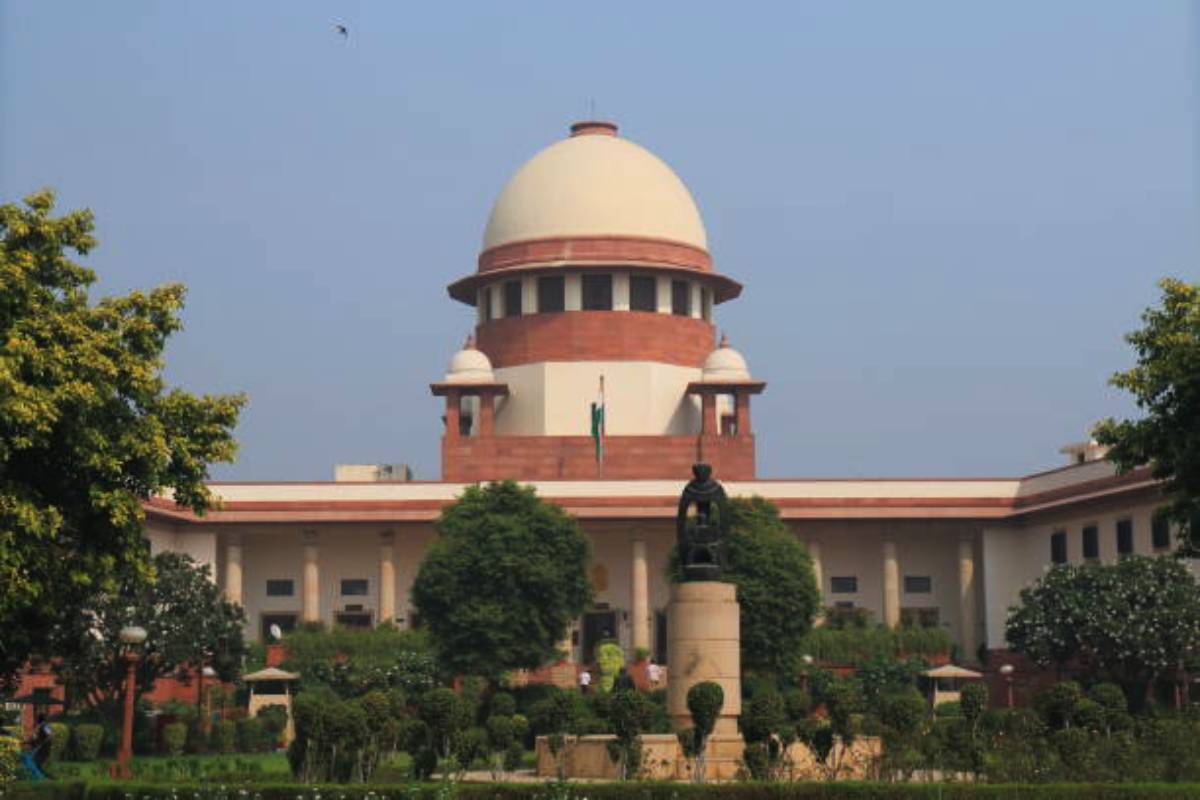The Supreme Court on Thursday reserved order on a plea seeking reconsideration of its 2016 Nabam Rabia judgment that prohibited Speaker to act on petition seeking disqualification of errant members of the legislative assembly belonging to a party, when he is faced with a notice of removal.
The issue has arisen from the Maharashtra political crisis on account of Shiv Sena infighting between former Chief Minister Uddhav Thackeray and current Chief Minister Eknath Shinde factions. While Uddhav Thackeray camp which suffered the brunt of 2016 judgment sought its reconsideration, the Chief Minister Shinde faction, which used 2016 judgment to its advantage, defended it, opposing its reconsideration.
A five-judge constitution bench comprising Chief Justice D.Y.Chandrachud, Justice M.R. Shah, Justice Krishna Murari, Justice Hima Kohli and Justice Pamidighantam Sri Narasimha reserved the order after hearing arguments spread over two and half days on a batch of petitions arising from Shiv Sena triggered Maharashtra political crisis.
The core of the issue is at what stage a Speaker of a legislature, faced with a notice of removal, is disabled from acting on the petitions seeking disqualification of legislators under the tenth schedule of the constitution.
The Shinde faction said that Speaker is interdicted from acting under the tenth schedule of the constitution (a provision providing for disqualification on grounds of defection) the moment he is served with a notice seeking his removal.
On the other hand, while arguing that Speaker cannot be, at any stage of his removal from office, disabled from acting under the tenth schedule, Thackeray camp said that there cannot be a presumption of Speaker – a constitutional authority – acting malafide in exercise of his powers under the tenth schedule.
However, Thackeray camp said that even under Article 181 of the constitution, which is not relevant to the tenth schedule, a speaker will get disabled, when the resolution for his removal; is taken up consideration by the legislature. It was argued that a member who has served notice of intention to move resolution for the removal of a Speaker may not eventually press it. Thus mere serving a notice of removal cannot disable a Speaker.
However, the court appeared inclined to reconsider some aspects of 2016 judgment and “tighten” it as it had on the second day of the hearing observed that if Speaker, merely because he has been served with a notice for his removal, is prohibited from acting under the tenth schedule it would lead to the “free flow of human capital (legislators) from party to another” resulting in the toppling of the government .
On the other hand, the court had observed that a leader, having lost the backing of the elected representative belonging to his party, can still perpetuate himself by threatening his party’s lawmakers with action under anti-defection law.
A five-judge bench of the top court in 2016 had ruled that when a speaker is himself faced with notice of removal, he will not act on the petitions pending before him or that may come before him seeking disqualification of disgruntled lawmakers belonging to a party, till his position as Speaker is reaffirmed by the legislature. The Naban Rabia judgment was rooted in the 2016 political crisis in Arunachal Pradesh.
The hearing that had commenced on Tuesday and concluded today encroaching into the lunch time of judges, amongst others saw senior advocates Kapil Sibal, Abhishek Manu Singhvi, and Devadatt Kamat, appearing for Thackeray camp and Harish Salve, Neeraj Kishan Kaul, Mahesh Jethmalani, Maninder Singh and Siddharth Bhatnagar appearing for Shinde camp.












